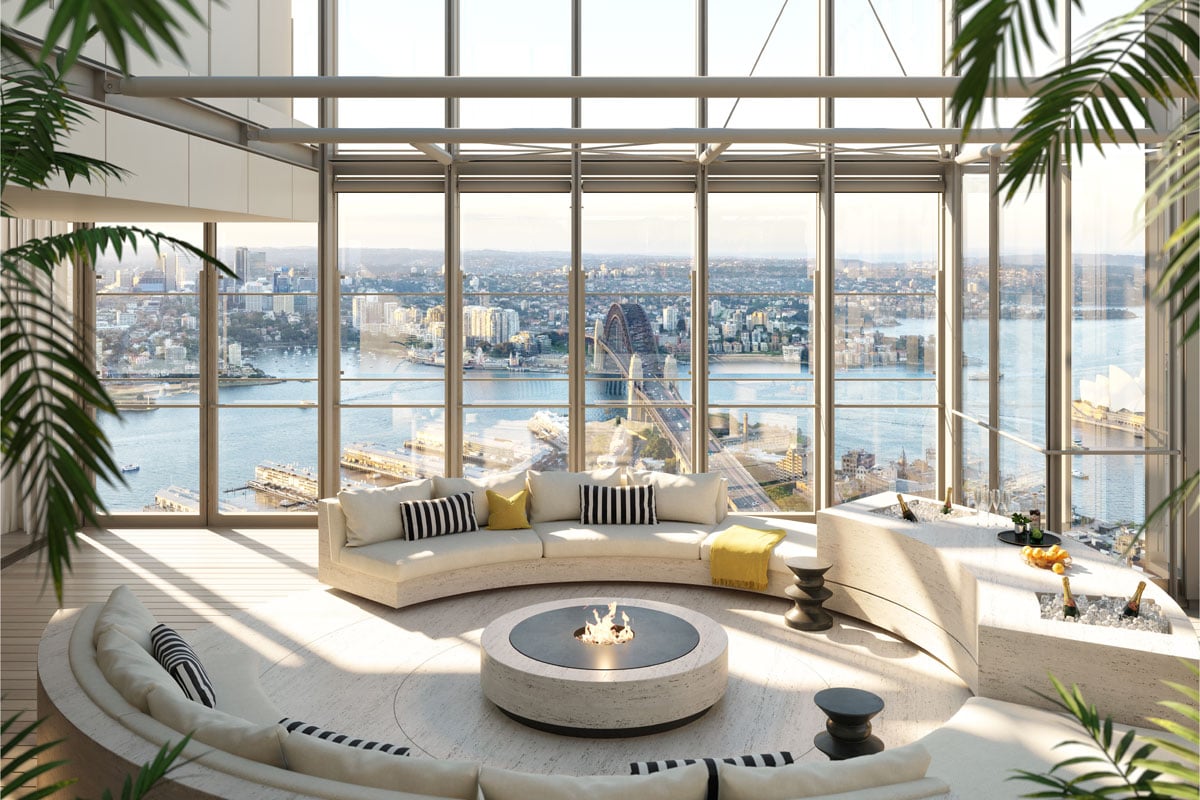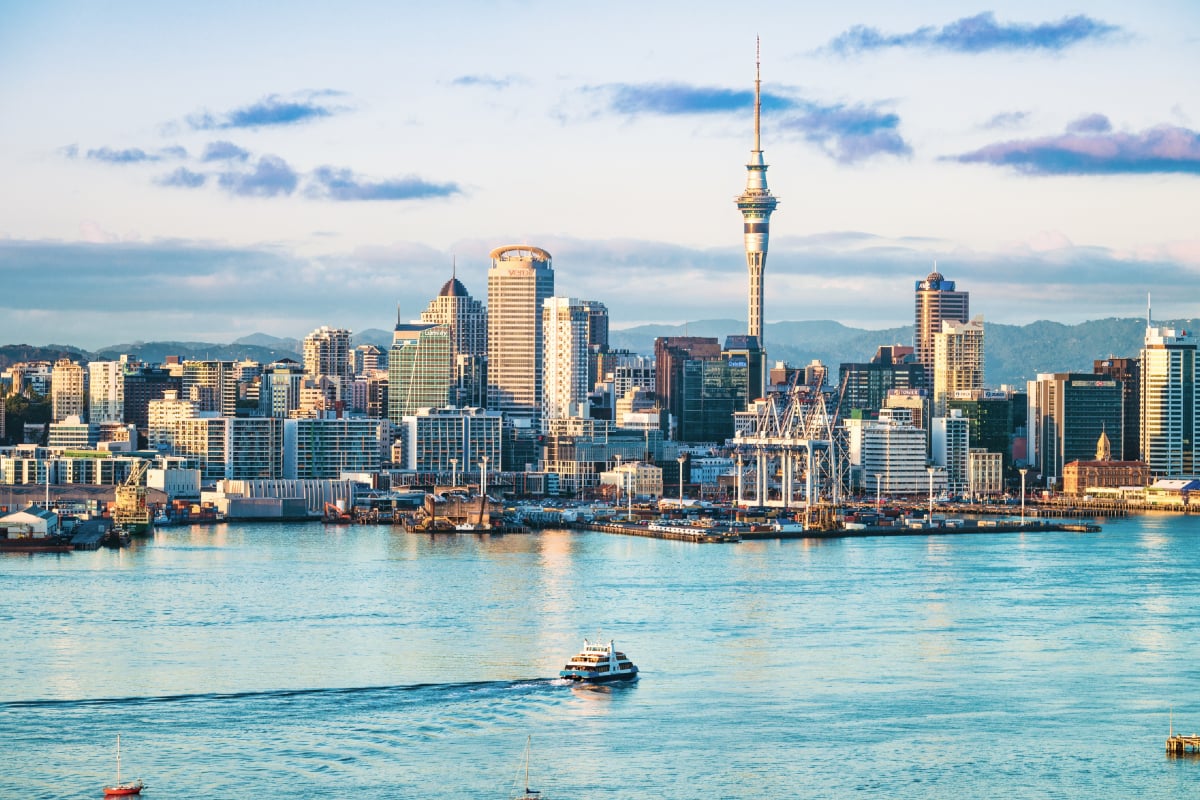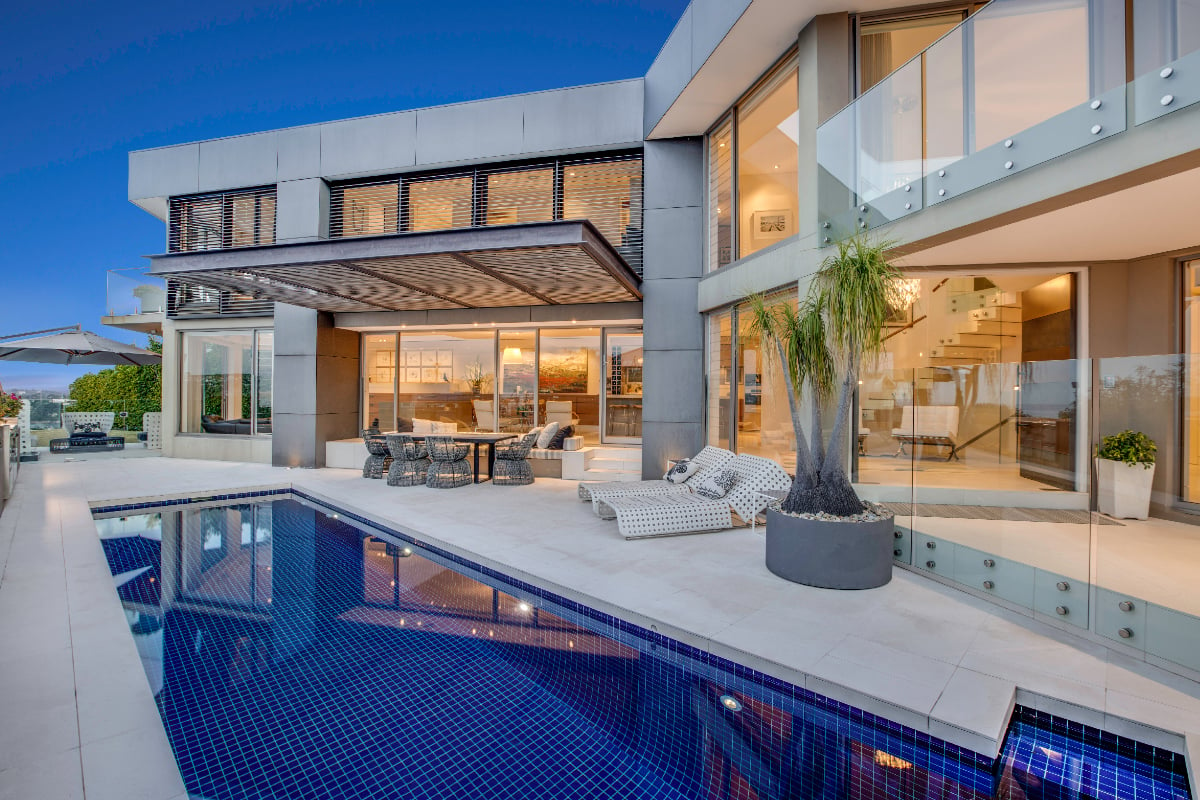They say there’s only two certainties in life: death and taxes. This may be true for spreadsheet dictators with an unhealthy addiction to spray-on suit pants, but when it comes to the world’s lowest income tax countries, a finer quality of life can exist.
The truth is that no one wants to watch huge chunks of their income being confiscated by the tax man. This is what makes the idea of uprooting and re-establishing life on an exotic island with a few coconut trees and zero income tax so darned appealing.
Sun, sand, sangria and a full pay packet with no tax sounds like the fast road to retirement, right? We explore some of the countries that have little to no income tax alongside their liveability rating – not all countries with zero or very low income tax offer an idyllic life.
How countries with zero income tax survive
The answer to how the world’s lowest income tax countries work isn’t rocket science; it all comes down to alternative sources of revenue.
Accomplish that to a high degree, whether it’s in tourism, oil production or mining, and you’ll have revenue that can offset the need to tax residents.
Alaska generates 90% of its revenue from its oil and gas industry and boasts a 0% income tax rate. Oil-rich countries like Oman and Qatar are also in the same boat.
Countries like the Bahamas or the Maldives meanwhile generate enough revenue from tourism to fund a government without the need for an income tax on residents.
United Arab Emirates

Income tax: 0%
Price of a can of Coke: US$0.83
Liveability: There are plenty of oil-rich countries littered throughout the Middle East that don’t impose an income tax on residents but the United Arab Emirates is generally considered one of the most popular due to its stable government, educational facilities and robust economy. In terms of general liveability, the UAE offers one of the most multicultural communities in the region. As a result of this there are plenty of dining and entertainment options to choose from alongside a strong English-speaking community. Those thinking about making the UAE a tax-free home will need to make some lifestyle considerations though – there are strict rules to abide by.
● Non-Muslim residents need to obtain a liquor licence to consume alcohol at home and in licenced venues only
● Women are required to dress modestly in public – no visible underwear is allowed and swimwear should only be worn at beaches or pools
● Cross dressing is illegal
● Kissing or showing public displays of affection is frowned upon
● Sex outside of marriage is illegal – this includes sharing a hotel room with someone of the opposite sex who you aren’t married or related to
● Homosexual sex is illegal and same-sex marriage is not recognised
● The UAE is a relatively tolerant society which respects one’s private life so long as it doesn’t attract public attention or offend others
Western Sahara
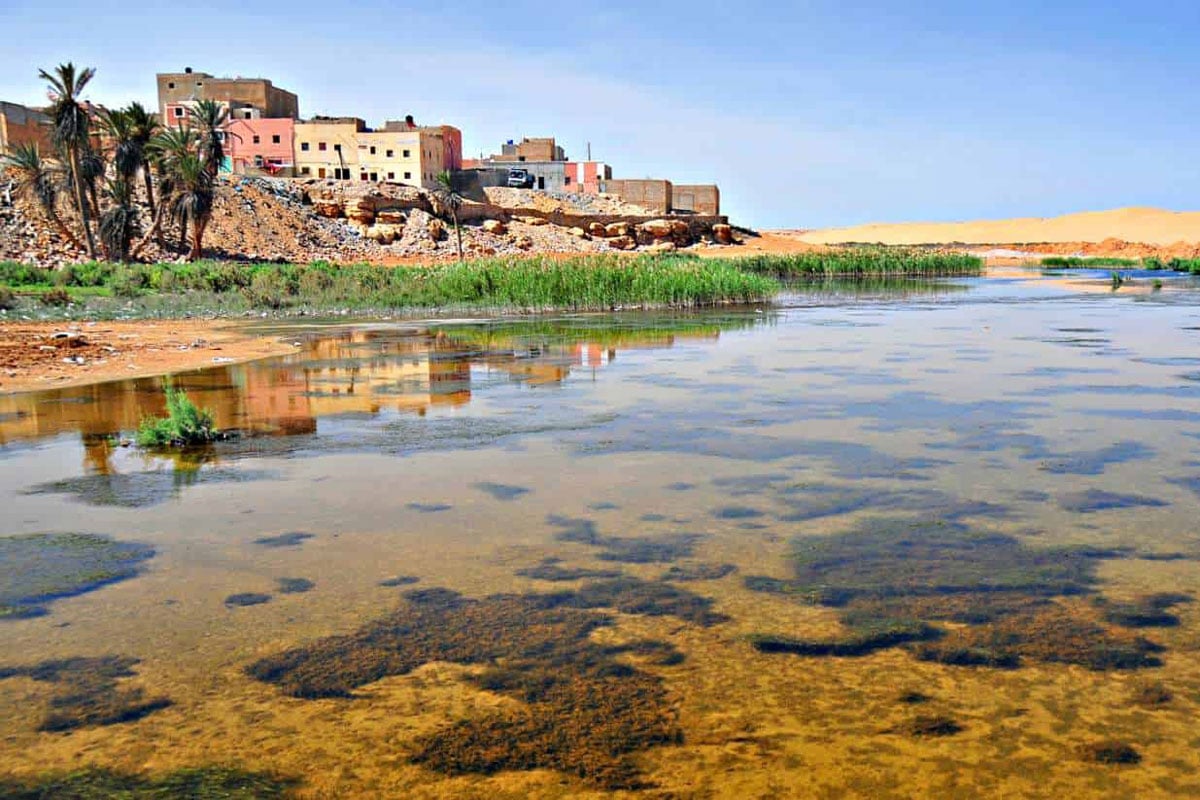
Tax rate: 0%
Price of a can of Coke: N/A – can be smuggled from Morocco for US$0.30 – US$0.70
Liveability: A tax-free country isn’t all about luxury hotels, hammocks and beaches. Western Sahara is a disputed territory of north-western Africa just neighbouring Morocco and Algeria. The region has been subjected to war and occupation for more than 40 years meaning Sahrawis have been forced into refugee camps whilst conflict simmers on. Such is the dire situation that Morocco has sealed off the occupied region with a towering sand wall spanning just over 2,700km across the desert, flanked by the world’s longest minefield. This is proof of when being one of the lowest income tax countries isn’t a good thing.
● Western Sahara’s tax-free status is a product of its territorial dispute
● It has no sufficient tourist hub and few natural resources
● It’s not a warzone but its unstable legal system subsequently makes liveability and investment unsustainable
Bermuda
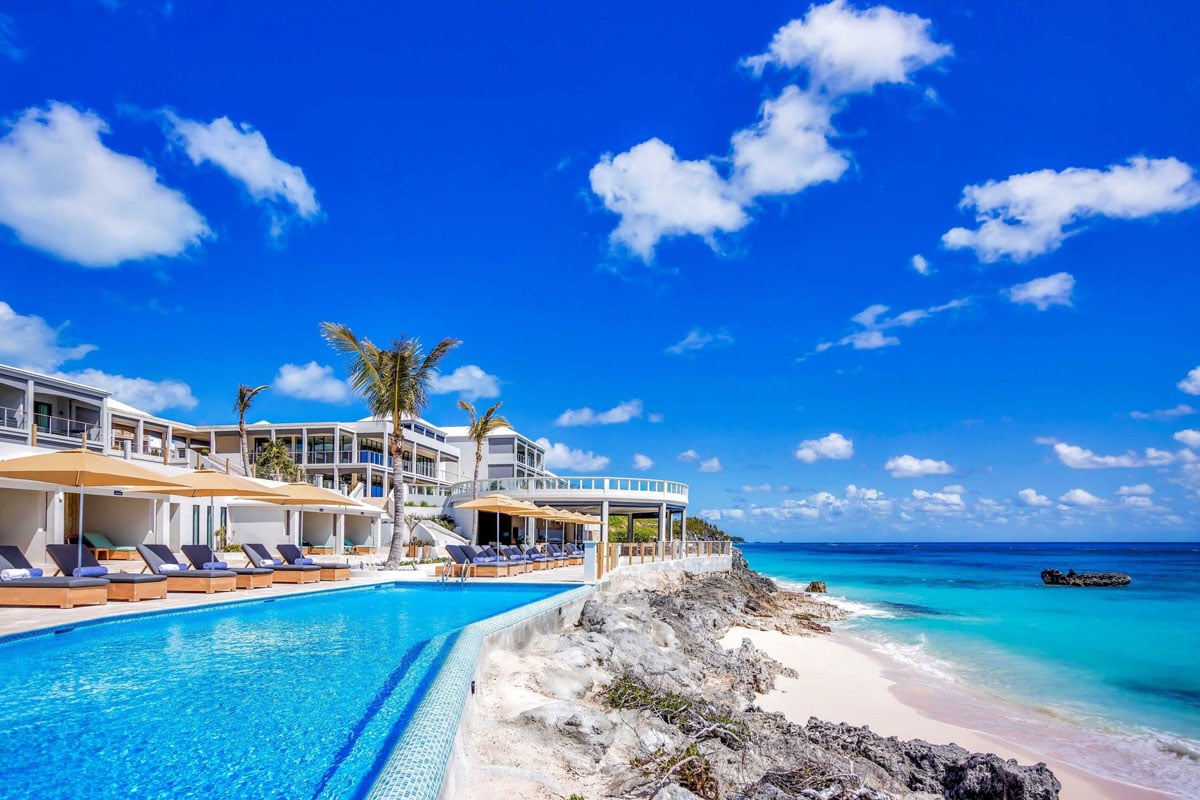
Tax rate: 0%
Price of a can of Coke: US$3.45
Liveability: Oracle Team USA, the world’s richest racing yacht team backed by billionaire businessman Larry Ellison is based out of Bermuda, so that should give you some indication of this Caribbean destination’s immense wealth. Bermuda is as luxurious and idyllic as it comes when you talk about tax-free havens. The downside? The cost of living is astronomical due to its relative isolation from the United States’ eastern coastline. Those who work in Bermuda tend to experience a luxurious lifestyle supported by high paying jobs but again, this is at the detriment of the high living costs – nearly four times that of the US and triple that of the UK or Canada.
● Bermuda is highly developed compared to other Caribbean islands
● Facilities include excellent road access, public transport and high-end restaurants
● Amazing expat community
● A survey from HSBC Bank International rated Bermuda as the second most friendly country in the world behind Canada
● Food and dining is expensive
● No income tax but there may be indirect taxes
● Pink sand, white sand, crystal blue waters and a cruisy lifestyle is the backbone of this British island territory
● There’s a big financial sector in the country to support workers
Somalia

Tax rate: 0%
Price of a can of Coke: $US0.61
Liveability: Somalia is a prime example of a tax haven that dispels the usual myth of living a lavish lifestyle by the beach. The region is arguably one of the least liveable countries in the world thanks to decades of civil war, crime, murders, kidnappings and general unrest. The government has thus far failed to contain these issues and it’s the reason why there is no income tax – it’s considered a failed state, which has nothing to do with revenue from tourism or foreign investment.
● Hargeisa (pictured) is the capital of Somaliland and is considered one of the safest places in the country with a population of 760,000
● Locals are extremely friendly and welcoming but there is still the isolated incident of threats of violence against foreigners
● Roads are basic with no traffic lights, street signs or streetlights
● Men can’t wear shorts or sleeveless shirts; women must wear long dresses or skirts
● Tourist attractions are minimal in Hargeisa besides a town market and camel market
● There is no alcohol in Hargeisa; men instead drink tea, coffee or fruit juice
The Bahamas

Income tax: 0%
Price of a can of Coke: US$1.66
Liveability: With Instagrammable swimming pigs and scenic pulling power such as this, it’s little wonder that the Bahamas doesn’t need to impose an income tax on residents looking to set up life amongst turquoise waters and white sands. Located off the coast between Miami and Cuba, The Bahamas is one of the richest countries in the Americas after the U.S and Canada. It earns this rank thanks to its robust economy bolstered by tourism and offshore finance. Things to note about the Bahamas:
● You’ll just need a fair bit of money to set up residence
● Temporary residency is granted with a US$1,000 fee by the immigration office, which can be renewed yearly
● You’ll need to make an investment in property to the sum of US$250,000 if you plan on staying long-term or acquiring permanent residency
Monaco
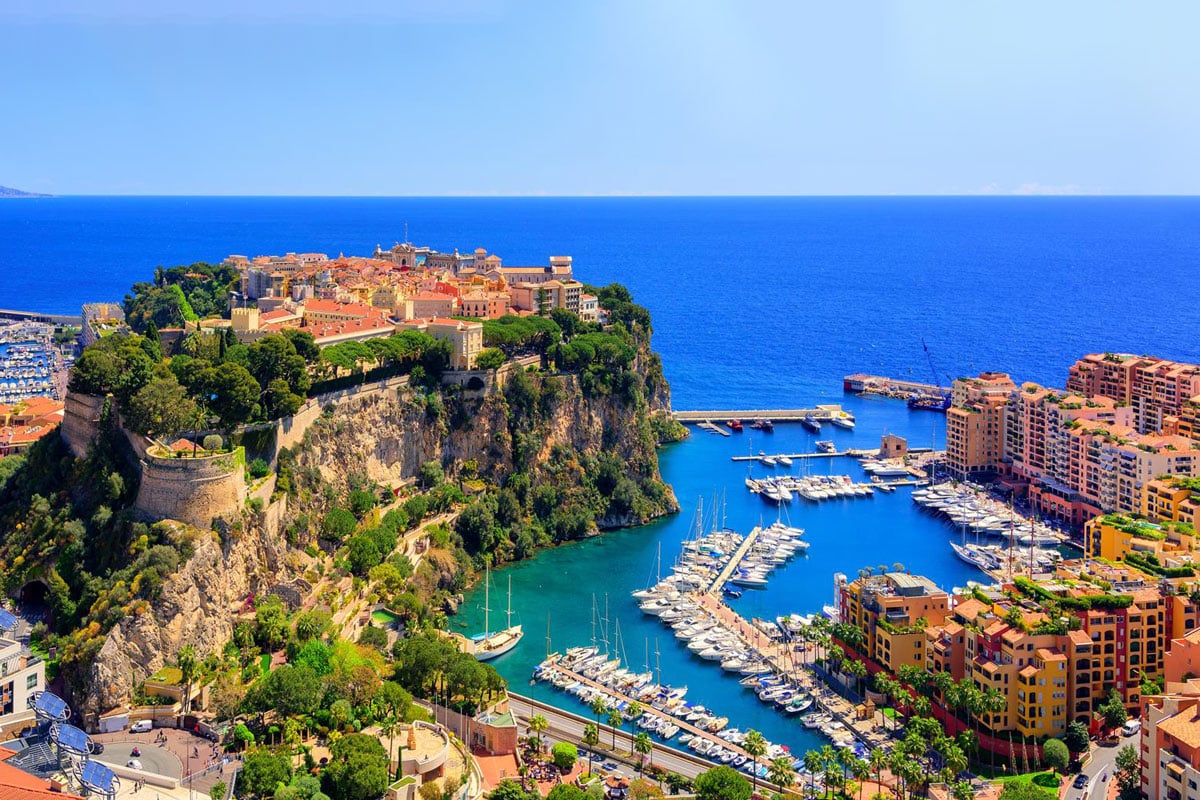
Tax rate: 0%
Price of a can of Coke: US$5.15
Liveability: As the poster child for tax havens it doesn’t get any more glamorous than Monaco for wealthy expats. The perennial playground for ultra-high-net-worth individuals is also one of the world’s most beautiful with dedicated marinas wrapping around natural cliff faces, and mansions and luxury hotels bordered by a sea of superyachts.
● Monaco became one of the earliest countries to abolish income tax in 1869
● Liveability score is naturally high but you’ll need to earn serious money to sustain the lifestyle
● Monaco is still one of the easiest tax-free countries to become a citizen in
● Monaco banks require a minimum deposit between 500,000 to 1,000,000 euros to establish a citizenship application
● Home to one of the world’s lowest crime rates
● There are no restrictions on foreigners opening bank accounts or buying property in Monaco
● During the Monaco Grand Prix, visitors can expect to pay peak rental fees of over US$10,000 a night at apartments
Andorra
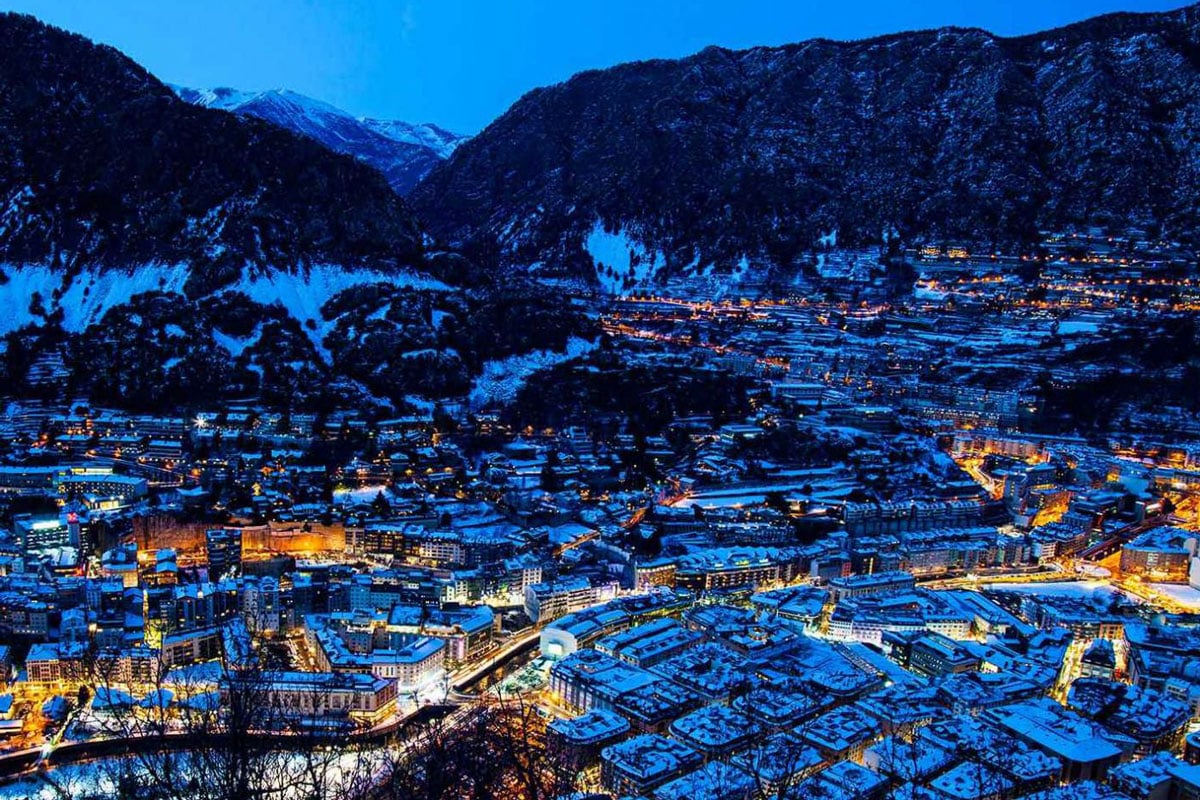
Tax rate: 10%
Price of a can of Coke: US$2.03
Liveability: There are plenty of tax havens that show off the finest in waterfront living, but for those who prefer snow to sun there is Andorra, a quaint little country located in the Pyrenees mountains, sandwiched on the border of France and Spain. Whilst not a completely tax-free haven – individuals making over 40,000 euros a year need to pay 10% tax – it does have a negligible capped tax rate. This means less time dodging the tax man and more time for hitting the ski slopes. If skiing isn’t your thing, the community is known for being quiet and easygoing. The official language is Catalan but locals also commonly speak Spanish, Portuguese and French.
● Andorra is considered one of the world’s safest countries with a population of 20,000
● The main city of La Vella saw just one armed robbery in 2015
● A value-added tax (VAT) means Europeans will regularly drive through for day trips to purchase cigarettes, liquor, clothes or electronics
● Obtaining citizenship in Andorra requires an extensive amount of time – over 10 years on average
Belize
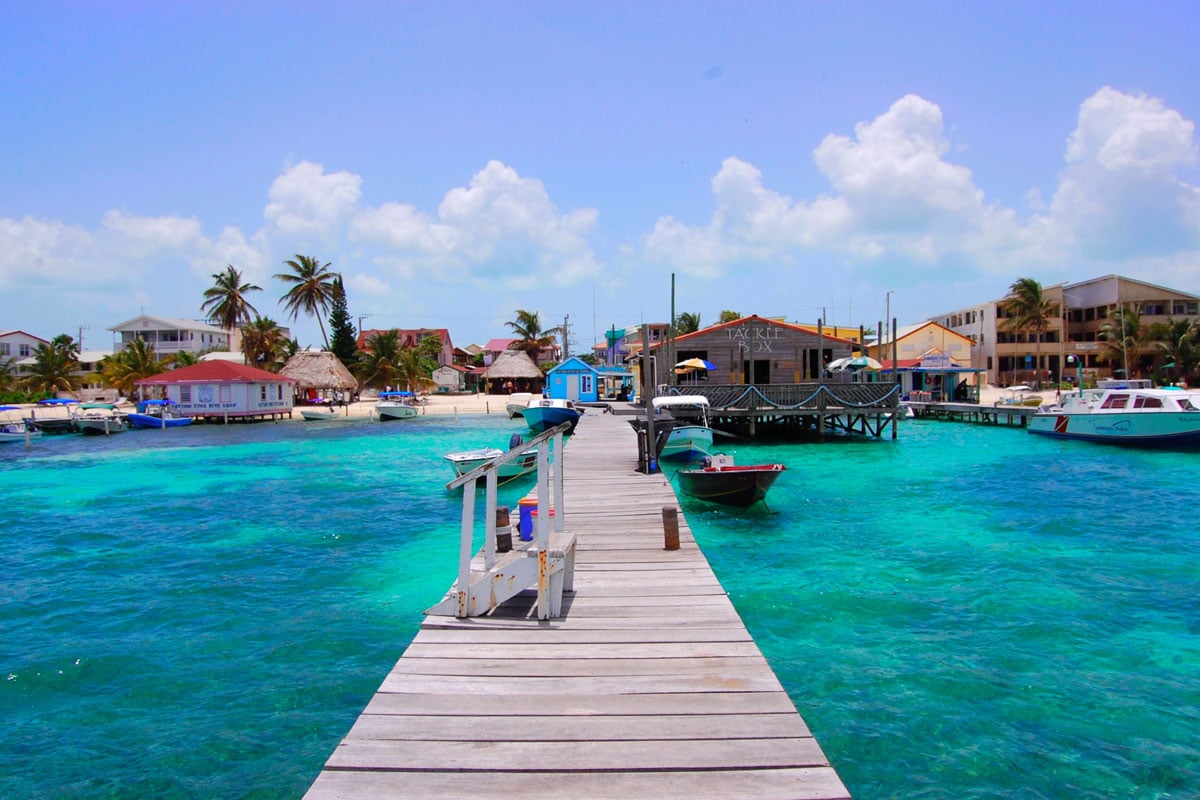
Tax rate: 25%
Price of a can of Coke: US$1.00
Liveability: If Bermuda or the Bahamas is out of your budget then Belize may be the tropical playground to call home. At roughly two-thirds the cost of living of the aforementioned B-locales, Belize is one of the cheaper Caribbean resorts to be considered a tax haven. For starters, the taxes are low. Income tax is capped at 25% for individuals and companies with the first US$10,000 exempt. There are also no capital gains taxes and property taxes are assessed at 1-1.5% of the land. Dividends from a Belize International Business Corporation – that is any offshore corporation that doesn’t include income from the US – are exempt from tax. There’s also zero tax on inheritance.
● Goods can be brought into Belize tax-free – this includes planes, boats and cars
● Residents only need to spend a month of a year in Belize
● It’s only a two-hour flight from Belize to the US
● The temperature rarely falls below 21°C
● Belize is the only official English-speaking language in Central America
● Revered for its relaxed and unpretentious summer atmosphere
● Ecologically stunning with the world’s second largest barrier reef along with the famous Blue Hole site amongst other natural environments
● The port city of Belize City is a dangerous place to avoid. It’s reportedly dirty, dodgy and rife with scammers, drug activity and crime
Brunei
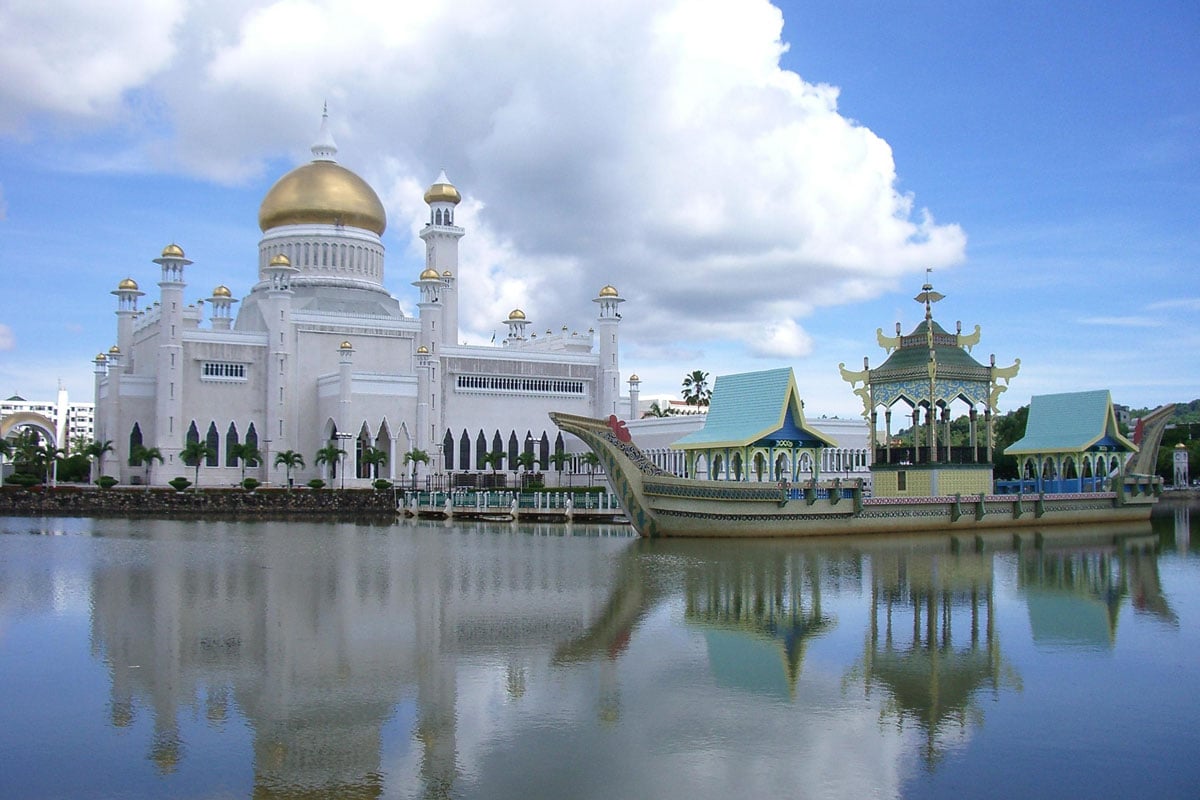
Tax rate: 0%
Price of a can of Coke: US$0.81
It may look good on paper with an income tax of 0%, but Brunei isn’t exactly the most liveable nation in the world. Beneath the opulent Jame’Asr Hassanil Bolkiah mosque complete with 29 golden domes, and the capital’s gaudy Istana Nurul palace, home of Brunei’s ruling Sultan, is a nation that bypasses income tax through its immense oil wealth. Beyond that it’s not the most welcoming place for foreigners and the government is a borderline dictatorship.
● Brunei follows strict Sharia law that bans the sale of alcohol
● Non-Muslims over 17 years old have a duty-free allowance of two litres of liquor or 12 cans of beer brought into the country every 48 hours
● Foreigners can only drink alcohol in hotel rooms or private residences
● Sex with a person who you aren’t married to is illegal
● Homosexuality is illegal in Brunei
● Speaking negatively of the Sultan or Prince is illegal
● Overstaying your Visa can incur strict penalties such as a fine, short prison sentence or caning
● Celebrating Christmas is a grey area – Christians can attend church in private but need to inform authorities as the Sultan believes any greater celebration could undermine Islam in the nation
Cayman Islands
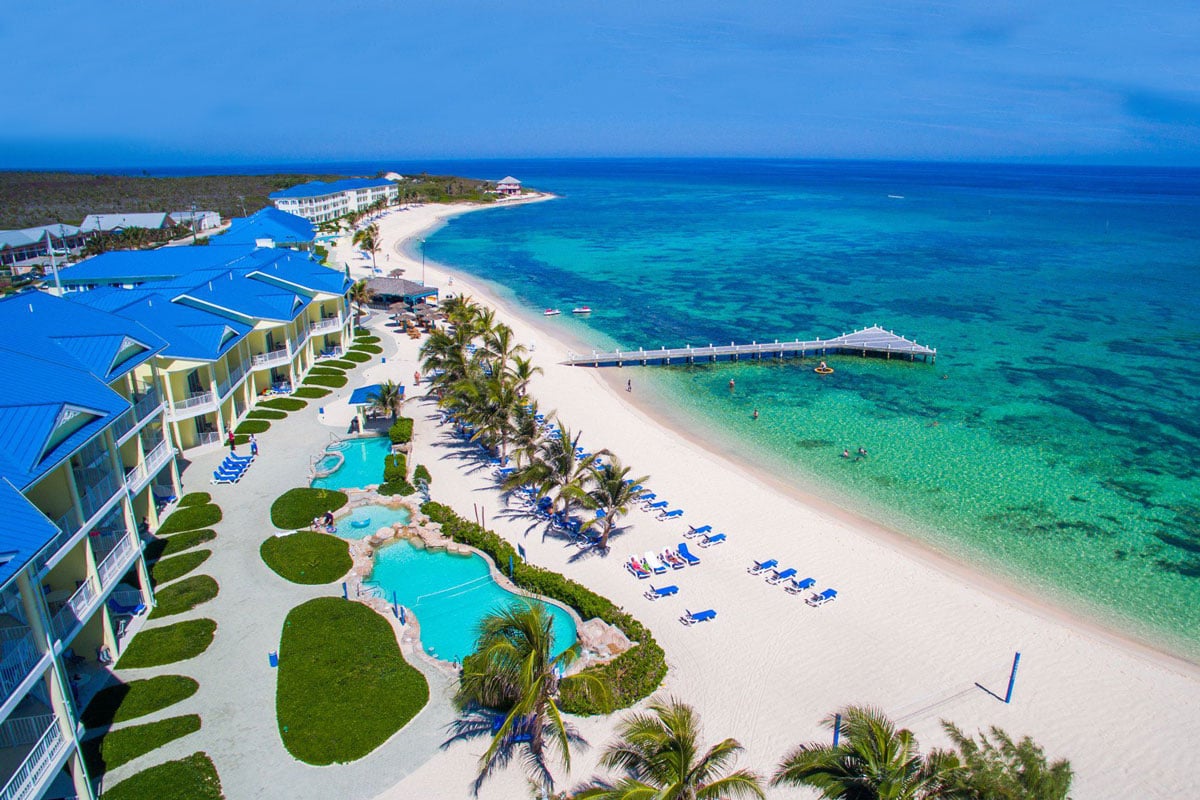
Tax rate: 0%
Price of a can of Coke: US$2.54
When most people think of tax havens the Cayman Islands often sits at the top of that list for both big businesses and individuals alike. The British Overseas Territory which is situated off the coasts of Cuba and Jamaica boasts zero corporate tax and zero income tax for residents. Pair this with an idyllic island lifestyle littered with sunsets, catamarans, cocktails and sandy white beaches and you’ll soon realise why plenty of young professional expats have made the Cayman Islands their temporary homes before returning to a life of settling down, getting a mortgage and starting a family. There’s plenty of evidence suggesting that the Cayman Islands is also a safe place to live. Violent crime is very low and when it does happen it’s usually contained to locals rather than targeted at tourists. Its population is considered small at roughly 60,000 residents and is perfect for those who live for diving and nature. Needless to say, two biggest industries in the Cayman Islands are diving followed by finance.
● The Cayman Islands is considered tax neutral meaning there is no income tax, no property taxes, no capital gains taxes, no payroll taxes, and no withholding taxes imposed
● The island earns its revenue through fees from tourism and work permits, financial transactions and import duties
● Imported goods attract high duty taxes between 22% and 27% whilst luxury cars can attract a duty tax rate of up to 42.3%
● You need health care to work in the Cayman Islands and employers are required to pay half of it
● Living expenses aren’t the cheapest and residents can expect to pay double the price for everyday items found in the U.S
● Every job must be advertised and offered to Caymanians first
● Buying real estate is welcomed and a straight-forward process with prices starting at US$300,000 for a townhouse before heading into the millions
● Real estate buyers only need to pay a once-off property stamp duty of 7.5%
● You can bring your pet to the Cayman Islands via ‘puppy passports’ issued via the department of agriculture
● A diverse range of standard professions exist from teachers to bartenders to nurses and hairdressers, so a balance of lifestyle and income saving is possible
● The region has inherited America’s food portion sizes and tipping culture
● The island has a robust fitness culture to match its leisure culture
● The lifestyle paired with a regular succession of new faces has been reported to be a strain on long term relationships
● Big firms like Merrill Lynch, KPMG and PWC operate offices out of the island
Bahrain

Tax rate: 0%
Price of a can of Coke: US$0.77
The Kingdom of Bahrain is a country located in the Persian Gulf alongside neighbouring Qatar and the United Arab Emirates. More importantly, it benefits from no taxes on income, sales, capital gains, corporate or estates with an exception surrounding the deriving of profits from the country’s fossil fuels. For companies embarking on this route there is a tax rate of 46% levied on net profits regardless of whether they are local or foreign. Other than that, the positives make Bahrain one of the more popular countries to reside in when it comes to tax minimisation. Another attractive trait is the fact that Bahrain is one of the most liberal Gulf States in the world with friendly locals who have pride in their culture. Nearly all Bahrainis can also speak English. The only real downside is that expats may encounter island fever on the island nation. Beachside developments have started to spring up on Muharraq Island for those seeking a bit more of a lifestyle bonus.
● Women are allowed to drive and work in Bahrain
● Expat women do not need to cover their heads or wear abayas however dressing modestly is recommended
● Pork and alcohol can be consumed and most restaurants are licensed
● Besides mosques, other places of worship can be found in the country including Anglican and Catholic churches and a synagogue
● While the working environment is attractive, Bahrain’s natural landscape isn’t exactly world class. Most of the desert scenery is littered with intersecting oil and gas pipelines
● Bahrainis are generally friendly and most expats won’t have issues making friends with locals
● Learning Arabic isn’t necessary unless it’s desired
● Housing options are generous in Bahrain with everything from apartments to stand-alone villas and gated compounds
● Water quality still needs some improvement in Bahrain so be prepared to drink from bottled water
● On the fitness front Bahrain offers plenty from tennis to golf to horse riding to pilates as some of the more popular options
● Book clubs and language schools are also popular amongst parents
● Proximity to Dubai, Oman, Abu Dhabi and other countries is a positive for those after weekend getaways
Read next: These are the healthiest cities in the world right now

